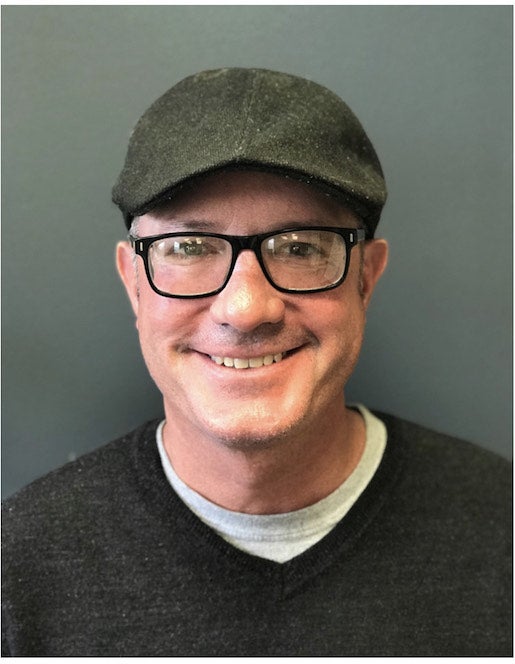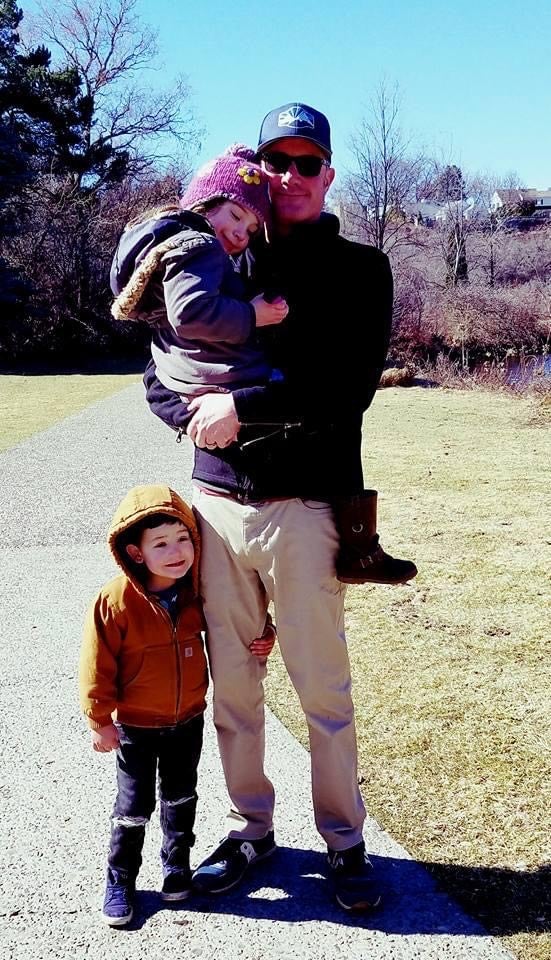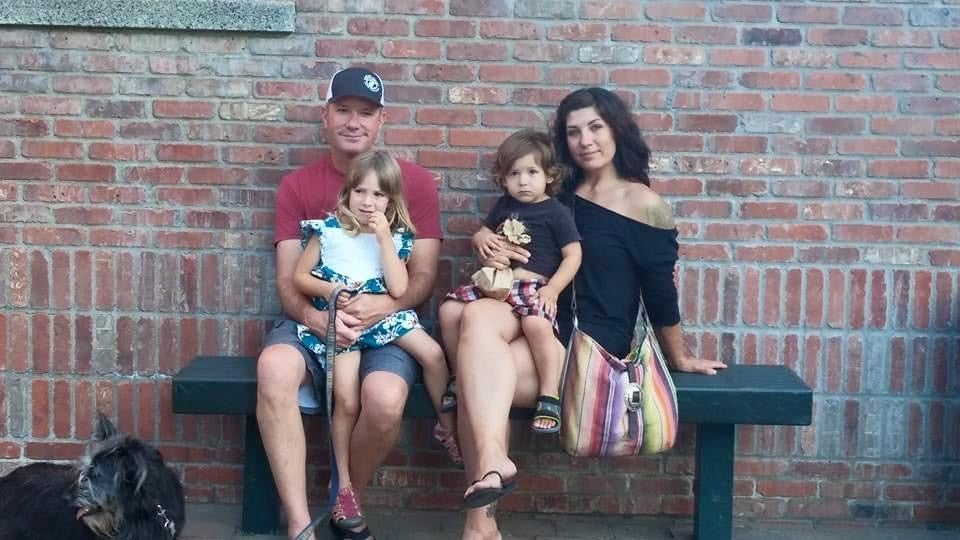
John Ottey, a lecturer in the Department of English, died unexpectedly on Monday, Sept. 14. He was 53. He leaves behind his wife, Amber Ottey, two young children, Vivien and Callum, and many friends and colleagues.
Ottey grew up in Lake Tahoe, California, and graduated from the University of California Santa Barbara. He was one of the first students to graduate from Boise State’s creative writing MFA program and was on the staff of The Idaho Review, the university’s literary journal.
“The English Department has sadly lost a great colleague and instructor,” said Mac Test, a professor and chair of the English department. “John loved teaching at Boise State University, and the students loved him too. Students often refused to leave the waitlists for John’s classes (even if there were 25 other sections available) because they had heard he was ‘the best.'”
“The outpouring of sentiments from students, friends, and coworkers describe John as a kind, loving, and jovial person, with an “easygoing smile.” Test added.
Elizabeth Barnes, a lecturer in the English department, wrote that John had “a presence about him that made others feel comfortable and allowed them to be their honest selves.”
A former student, Lilly Crolius, remembered how “the thought of college writing made me nervous, but with his guidance and fun-loving personality, he showed me (and I’m sure others) that writing could be anything we’d want it to be.”
Another colleague and writer at Boise State, Heidi Naylor, recalled, “one time I became emotionally overcome at a public reading and broke down in tears while reading my own story, completely unable to continue. John came up to the podium, took my manuscript, and finished reading it for me. He was gallant, no-nonsense, kind, talented, funny, smart, and caring.”
“The English Department was lucky and honored to have such a dedicated teacher, joyful coworker, and the Boise community has lost an exemplary citizen,” said Test. “At a time when the world is experiencing so much upheaval, it is a particularly sharp loss to no longer have John Ottey’s positivity filling air.”

Mitch Wieland, director of the MFA Program in Creative Writing, worked closely with Ottey when Ottey was a student in the program.
“I had the good fortune to direct his thesis, a story of which was published in The Harvard Review. John was as kind and caring as they come. He was generous and giving with his time. When he was hired to teach at Boise State, both my wife and son took classes from him. They loved him as much as I did. We will all miss John very much,” said Wieland.
Malia Collins, Idaho Writer in Residence and an assistant professor of English and creative writing at the College of Western Idaho, was Ottey’s friend and colleague. She shared comments:
“I knew John first as a writer – we were both fiction students getting our MFAs in the grad program at [Boise State]. He was a great writer and close reader and was never afraid to tell you your story was a mess, but generous with his craft comments on where you might start to revise. His feedback made it easier to crack the draft back open and get to work.
“I knew him a teacher when I shadowed him at the Cabin’s summer writing camp years ago. I remember sitting with him and his summer writing camp students at a picnic shelter at Julia Davis Park and he read them a Neruda poem – one of the odes – and had them write an ode to something they loved (I think he wrote an ode to cheese) and when they read their work, he delighted in their poems – and they adored him. From those kids at summer writing camp, to the students he taught at both CWI and Boise State, John’s students loved being in his class.”
Collins also noted Ottey’s “deeply kind” nature and his love for his family.

Kerri Webster, a visiting assistant professor in the Department of Theatre, Film and Creative Writing, described Ottey, a fellow member of the Boise State writing community, as a person who “always made the day brighter.”
“150 pages. That’s what I’ve been thinking of all day,” shared Webster in a Facebook post. “There were a few lean years when my office was across the hall from John’s, and we were both adjuncting at Boise State and the local community college. He’d teach six classes a semester; I’d teach five plus a Writers in the Schools residency. We’d commiserate across the hall… one day we calculated on a piece of printer paper: 150 students per semester times a minimum of 15 pages of writing from each student equals 2,250 pages commented on divided by 15 weeks equals an average of 150 pages to read and comment on each week.”
When Ottey became a lecturer with a better schedule and health insurance, “we toasted with lattes,” said Webster.
Friends have set up a gofundme account to benefit Ottey’s family.
Because of the pandemic, no service is planned at this time.
An excerpt from Ottey’s story, Alexa and the German, published in the Harvard Review 32 in 2019.
Here in our village under the shadow of the volcano Tungurahua, it’s always one thing or another. If the hot water runs in the morning, you can be sure the power will be out in the evening. Should you be lucky enough to rattle a few coins in your pocket on your way to the market, then you will undoubtedly arrive to find it closed. It is like this all over our country: bad plumbing, weak currency, political unrest, and so on. But we learn to live with these things. We have a saying: if you don’t like what’s on your plate, pass it along and then starve. It’s not much on poetry but truly some practical advice. We all have our fortunes, good ones and bad. Once you accept your fate, you get used to the taste of it. In fact, if you ask anyone from our town what they can rely on, they will point not to a chicken, a pig, or a man, but to the smoke of Tungurahua, and say, “Hope. For better or worse.”